The 15-minute city is an urban planning concept in which most daily necessities and services, such as work, shopping, education, healthcare, and leisure can be easily reached by a 15-minute walk, bike ride, or public transit ride from any point in the city. This approach aims to reduce car dependency, promote healthy and sustainable living, and improve wellbeing and quality of life for city dwellers.
Wikipedia - https://en.wikipedia.org/wiki/15-minute_city
On the surface, it all sounds pretty positive. However, for a complex range of reasons, the discussion around 15 minute cities has turned somewhat toxic with accusations of 'conspiracy theorist' being thrown at anyone raising legitimate questions about the feasibility of implementing them. This recently published piece has prompted me to yet again, wade into this discussion: Why has the ‘15-minute city’ taken off in Paris but become a controversial idea in the UK? - Helena Horton | The Guardian | 6.4.24. This piece takes a look at Carlos Moreno, a professor at the Sorbonne University who came up with the phrase '15 minute cities' and is playing a role working with the mayor of Paris, Anne Hidalgo, in getting them set up across the city. Moreno does quite a convincing job of selling the concept based on how it's working across the city of Paris.
It's time for a bit of a geography lesson. The map at the top shows the administrative area of the city of Paris which broadly stretches out to the Peripherique, the ring road that circles the inner core of the considerably larger urban area that surrounds the city. The map below that shows how the city of Paris sits within the broader Ile-de-France region and the extent of suburban development. So, what Moreno and Hildago are focusing on with their implementation of 15 minute neighbourhoods only covers a fraction of the urbanised area of what can best be termed greater Paris but isn't really Paris because the administrative area of the city has been so tightly drawn.
Paris within the Peripherique is a pretty compact place and the way it has been developed quite easily facilitates the implementation of 15 minute neighbourhoods, aided by some changes to planning and zoning laws. With a fairly sophisticated public transport network, there are viable alternatives for drivers in the central core to take up. The consequent reduction in traffic within the city of Paris then makes walking and cycling more attractive and feasible options. Along with the encouragement of the return of fully fledged neighbourhoods where a lot of life's amenities are within a 15 minute walk, it's understandable that a fair number of Parisians within the Peripherique are taking to the idea. However, I suspect that the majority of them are bourgeoisie...
As a bit of an aside, there are elements of French society who don't like being told what they can and can't do and resent any top down interventions in their lives. Resistance to this takes a variety of forms ranging from the Gilets Jaunes protests through to uprisings out in the banlieues. Understandably, there are those who see the implementation of 15 minute cities as a top down measure. This would particularly apply to those trades who need a vehicle to get to building, painting, plumbing, electrical and other jobs in the middle of Paris who will find their progress increasingly hindered by pedestrianisation and other traffic control measures while still facing pressure from their customers to get the job done regardless.
With the 2024 Olympic Games taking place in Paris this summer, there are going to be a lot of road closures and restrictions as to how people can, or more likely, can't move around Paris. This is just one of many articles covering these restrictions and how they are likely to be imposed: Ask for a QR code in May to get around Paris during the Olympic Games! - Laura Coll | Paris Secret | 12.4.24. You can't help thinking that some of these measures may well end up being 're-purposed' after the games as part of the process of implementing 15 minute neighbourhoods. I don't know about you but somehow, I can see this leading to a certain amount of 'friction' around Paris come the summer!
One of the grimmer banlieues surrounding Paris.
Getting back on track, the suburbs surrounding Paris are a completely different proposition to the city itself. Particularly those to the north and east of the city which are predominantly working class, are full of sprawling public housing projects and are not at all well blessed with having all of life's amenities to hand within a 15 minute walk:
In France, a banlieue is a suburb of a large city, or all its suburbs taken collectively. Banlieues are divided into autonomous administrative entities and do not constitute part of the city proper. For instance, 80 percent of the inhabitants of the Paris metropolitan area live outside the city of Paris.
Beginning in the 1970s, the term banlieue has taken on a particular connotation, becoming a popular word for economically-deprived suburbs featuring low-income housing projects (HLMs) that are home to large immigrant populations. People of foreign descent reside in what are often called poverty traps.
Wikipedia - https://en.wikipedia.org/wiki/Banlieue
My experience of these Parisian suburbs comes from a number of low cost coach holidays we took in Paris where our accommodation was budget chain hotels in places such as Rosny-sous-Bois and Drancy. Areas with a mix of traditional suburban homes, albeit that a fair few had seen better days, and vast public housing projects. Areas criss crossed by main roads and motorways and because of the way they'd been allowed to sprawl, with little attention to having life's amenities to hand, having to drive was pretty much essential. For anyone living out in these suburbs who is too poor to run a car and has to rely on public transport and walking, life can be very grim. Particularly in those banlieues that seem to have been located a long way from any reliable public transport connections. Basically, these are places where marginalised people are warehoused until the authorities decide what needs to be done with them. It's no surprise that every so often, these locations erupt in explosions of rage...
These suburbs and banlieues are a metaphorical million miles away from the mainly bourgeoisie parts of Paris within the Peripherique. It should be noted that what remains of working class Paris within the Peripherique has, for a number of years, been squeezed out by international investors parking their money in property in the city, forcing up rents all around: The Death of Working-Class Paris - Cole Stangler | The Nation | 10.11.20. While the mainly bourgeoisie populace in their enclave within the Peripherique may well enjoy the benefits of living within a 15 minute city, those less fortunate souls living in the suburbs, particularly those to the north and the east have to contend with the gritty reality of a pretty grim environment. The kind where you wonder just what the f**k the 'planners' were thinking when all of these housing schemes were thrown up with scant regard to providing the accompanying amenities that people need to live a decent life.
Moorland Road in Oldfield Park, a suburb of Bath. Arguably, this could be the core of a pretty decent 15 minute neighbourhood if no coercive measures were imposed in its implementation.
Let's move from Paris to where I live in the Avon region, between the cities of Bristol and Bath. Both Bristol and Bath have people who are passionate advocates of the concept of 15 minute cities. There are neighbourhoods in both cities that arguably already function as 15 minute neighbourhoods. They are mostly but not exclusively middle class areas in the inner suburban core, Clifton in Bristol and Oldfield Park in Bath being just two examples. We're talking about an interesting array of food shops, lots of other independent shops plus nice cafes and restaurants. Also, we're talking about a fair number of people who work from home which while it may gut the city centre economy, it provides a decent boost to the independent shops and cafes a few streets walk away. All very nice and agreeable for those who can raise the dosh to live in these types of neighbourhoods. Obviously, the fortunate residents of these areas, while having a lot of what they need within a 15 minute walk, feel free to travel to other areas.
However, there are some working class areas in the inner suburbs of Bristol that while they may have a lot of choice of food and other shops to meet the needs of the immediate community, they're places where people tend to not move that far away from their areas. Yes, they could in effect be described as 15 minute neighbourhoods. A walk up Stapleton Road revealed that for all the problems the area has, there are plenty of food stores, many offering a very decent range of fresh fruit and vegetables. Okay, there isn't a Waitrose along that road but what there is more than meets the needs of the local community.
One of the many well stocked food shops along the Stapleton Road in Easton, Bristol - an area where a 15 minute neighbourhood' is a feasible proposition if that's what the local community want.
Are there downsides to the concept of 15 minute neighbourhoods in inner city areas? One that struck us when we were in the Easton area of Bristol was the way it could further increase divisions in what we, still as outsiders, can sense is a polarised city. While it's desirable that many of your basic needs could be met within a 15 minute walk from your home, that shouldn't rule out being able to move freely around the city and also, feeling welcome wherever you are. That means being able to visit a park in a neighbouring area and not having to worry about certain elements telling you that you 'don't belong' there: Arrest following ‘racist and Islamophobic’ attack in Bristol park - B24/7 | 27.09.22. If the implementation of '15 minute neighbourhoods' leads to further polarisation and isolation of communities in what would effectively be ghettos, then the concept needs to be interrogated. It has to be a combination of accessibility, mobility and connectivity, otherwise people will rightly question the agenda behind the concept. This is something that I'd like the Bristol based advocates of 15 minute cities to honestly address.
Then there are the peripheral suburbs where there's a lot less in the way of working from home and a lot more in the way of having to travel to and from work to a workplaces that all too often, are on trading estates right out or beyond the fringes of the city. These are also places where if you have anything like a decent range of food shops within a 15 minute walk of your home, you are very lucky indeed. We're talking about sprawling suburbs that are a mix of lower middle class, aspirational working class and the more marginalised sections of the working class who have been warehoused on isolated peripheral estates. I'm talking about places such as Bradley Stoke over the border in South Gloucestershire and Hengrove and Hartcliffe on the southern edges of Bristol.
Withywood and Hartcliffe on the southern edge of Bristol. Good luck with trying to implement a 15 minute suburb here!
Places where for a variety of factors, having to drive is pretty much essential in order to have a halfway decent life. For those people stuck out on the more isolated estates who for various reasons, can't drive, life is pretty grim. What exacerbates the situation are the piss poor public transport links to and from the city centre. The very thought of even attempting to apply the concept of a 15 minute neighbourhood in locations such as this is laughable. I've tried to engage some of the advocates of this concept to solicit their thoughts on how they think it could done, so far to no avail.
At this point, at the risk of repeating myself for the umpteenth time, it needs to be noted that the two of us behind this project don't drive. When we relocated to Keynsham, our criteria include having a decent range of shops within walking distance, being close to health care facilities such as the doctors and a dentist and being within easy walking distance of a railway station and a bus stop. That pretty much ruled out at least two thirds of Keynsham which is not exactly a big town. Luckily we did find what was to all intents and purposes, our own 15 minute neighbourhood, with the bonus of having a decent park and open countryside within walking distance. In theory, we admit there's a lot to like about the concept of having a lot of life's amenities within a 15 minute walk if the process comes from the grassroots rather than being something that's imposed upon us. I repeat this because when we make criticisms of the way the concept of 15 minute cities has been mooted in this country, we don't want people accusing us of being petrol heads, because we're not!
As for the accusations of 'conspiracy theory' being hurled at anyone making a legitimate criticism of how 15 minute cities are being implemented, those making them really do need to take a step back and think about what has happened over the last four years or so. From my perspective, there does seem to be somewhat of an overlap between the advocates of 15 minute cities and those who were calling for stricter lockdowns and other restrictions during the Covid 'crisis' of 2020 and 2021. There's also a bit of an overlap between those who raised criticisms about and opposed the lockdowns, restrictions and the attempts to impose 'vaccine' mandates, and those raising questions about the way 15 minute cities are being implemented.
What doesn't help with the polarisation is that the advocates of 15 minute cities tend to be mainly middle class while those raising questions about them tend to be more working class which mirrors the class divide between those calling for greater lockdown measures and restrictions, and those opposing them. There is a barely acknowledged class element to the discussion, such as it is, around the implementation of 15 minute cities. Given this polarisation, it doesn't come as any surprise to me that there's little or no constructive dialogue between the advocates of 15 minute cities and those raising legitimate concerns about their implementation. From my own personal experience, it feels that there's an element of the pro 15 minute cities lobby who are adopting a haughty, dismissive and holier than thou attitude towards anyone raising legitimate questions. However, I'll persist in trying to get through to these people so at least I can be seen as acting in good faith...






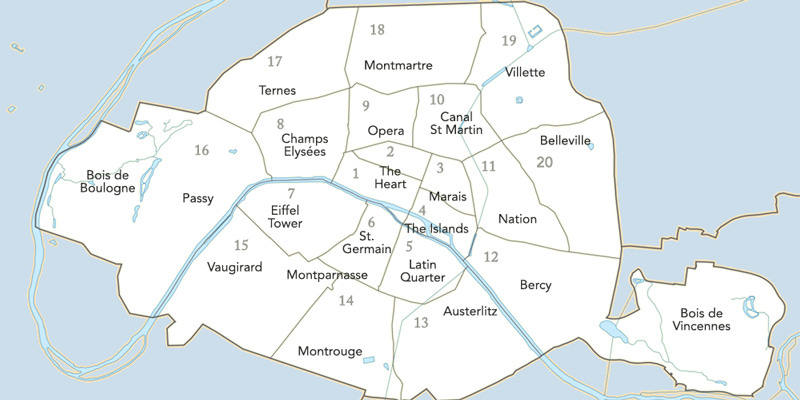
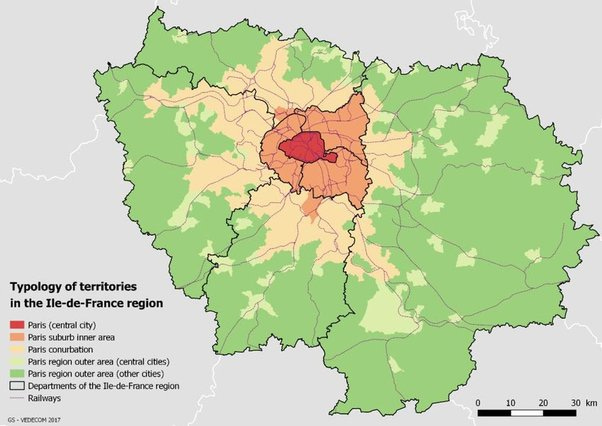
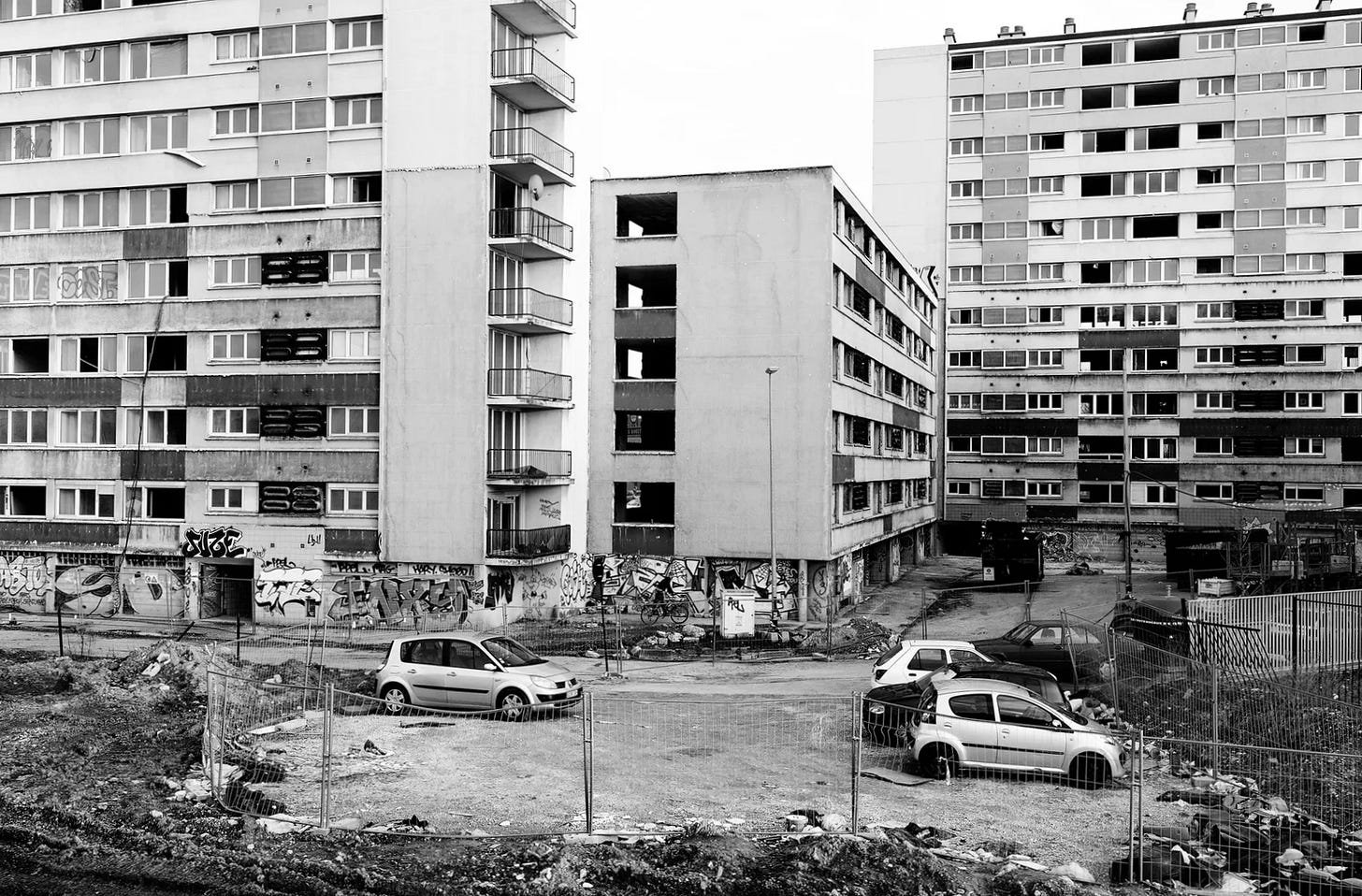
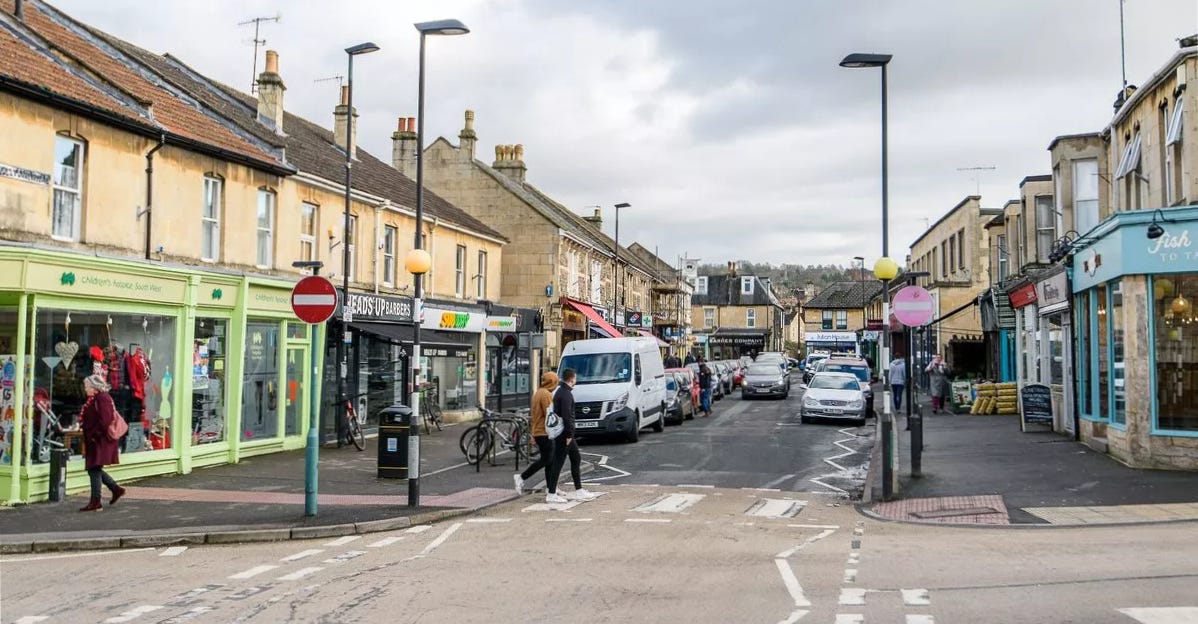

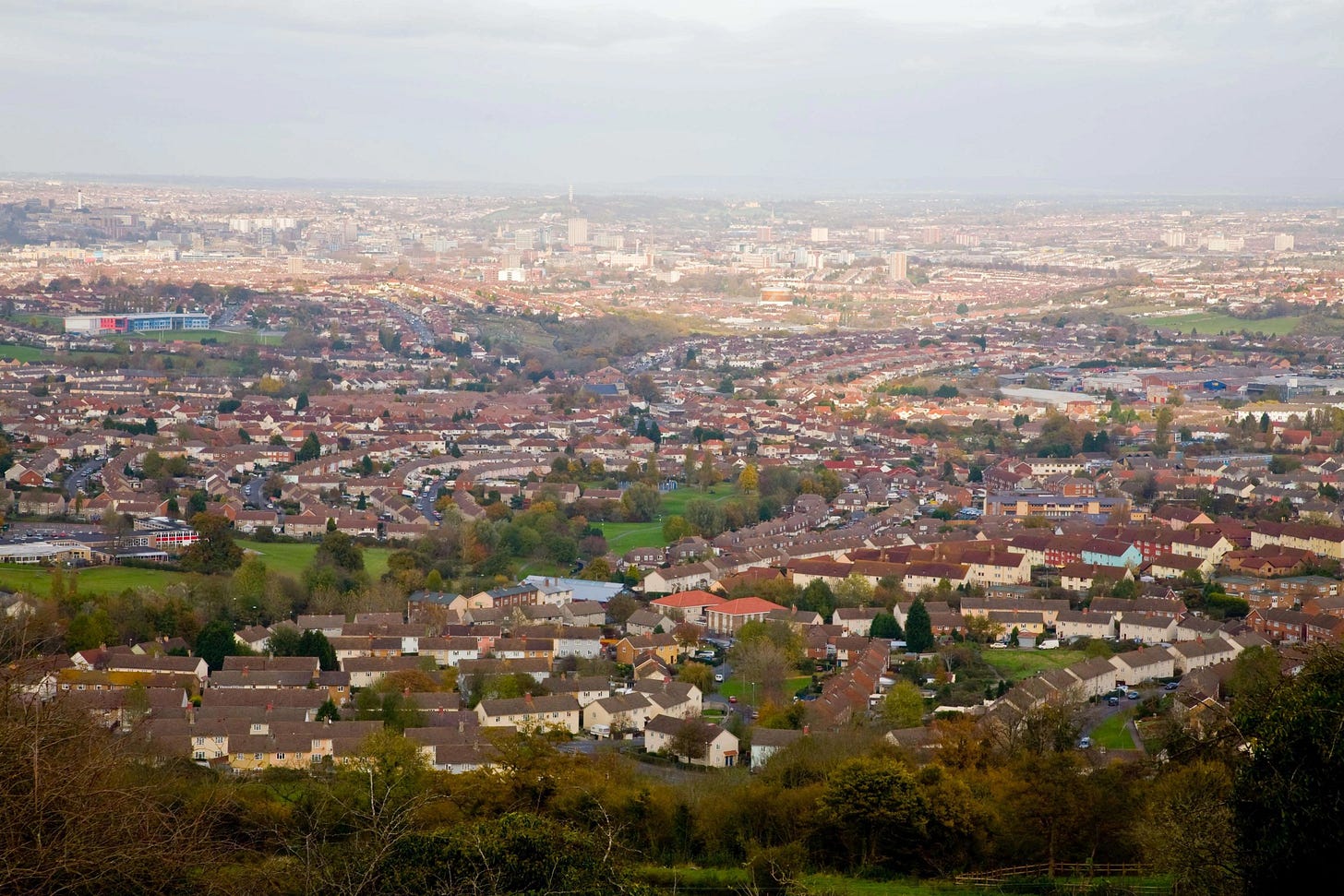

Very good blog post. Also, students may be among those who support the 15-minute city concept. Although probably heavily in debt, whether or not their respective family backgrounds are among the professional middle-class, it is where they aspire to get to, hence they will identify with the values.